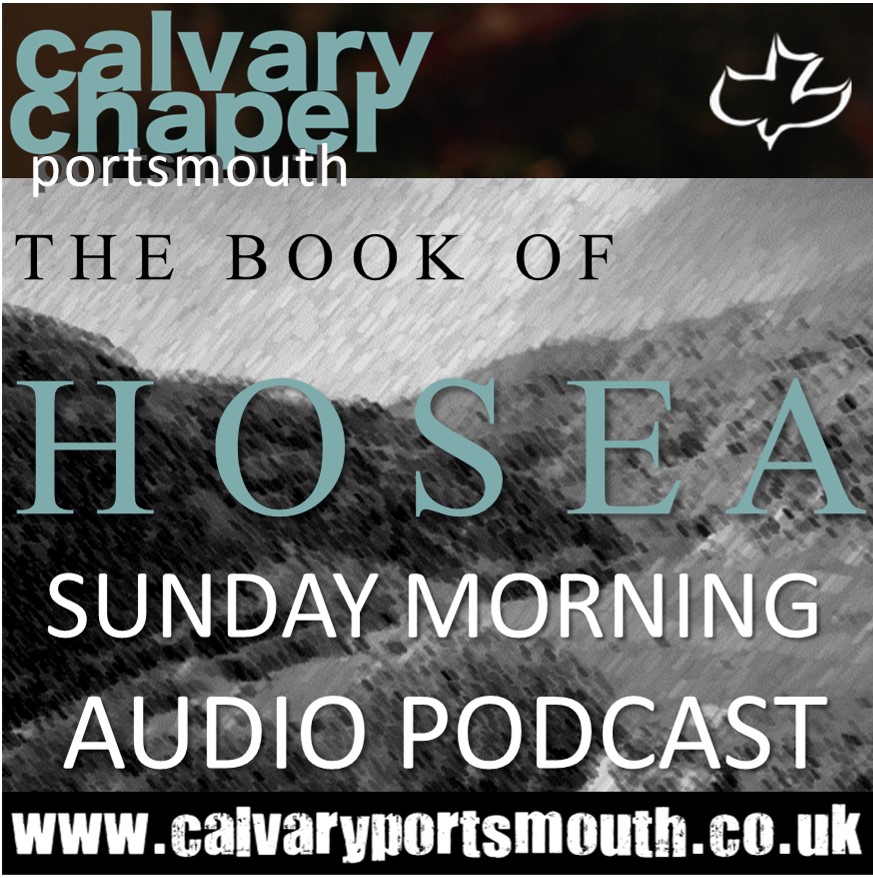HOSEA CH3
01-08-2021

**Due to a technical difficulty the audio quality of this recording is not great - please accept our apologies! **
Chapter 3 of Hosea is one of the shortest chapters in the Bible, at just 5 verses; yet it's content is profound. C. I. Scofield comments:
Chapter 3 is one of the classic Old Testament passages describing Israel's past present and future. Her idolatrous past is illustrated by Gomer’s unfaithfulness to Hosea (v1-2) despite which Hosea is commanded to love her and buy her back ‘according to the love of the Lord toward Israel’ - a love which led Him to pay the purchase price of the blood of the cross to redeem Israel, the basis of her restoration. The present condition of Israel is illustrated and plainly prophesied in v 3-4. Her future is declared in v5, showing her repentance toward God who in his faithfulness will restore her.
Dr. Charles Feinberg, and outstanding Jewish believer and scholar, says of this chapter, “It rightfully takes its place among the greatest prophetic pronouncements in the whole revelation of God.”
Certainly, this chapter is worthy of our attention!
It contains a summary of God's plan of salvation, as seen specifically though the relationship of Hosea and his adulterous wife Gomer, and as seen in a broader sense between the relationship of God with the Nation of Israel.
In verse 1 Hosea is told by the LORD to go and purchase Gomer back, even though she had been unfaithful to him. Evidently, Gomer had ended up in debt and had become a slave. Her new master was selling her and Hosea goes to buy her back - even though he was her husband! God tells Hosea to love her with the love He had loved Israel. God's love is unconditional, and all love should be based on the love shed abroad in our hearts by the Holy Spirit. We cannot love other until we know the love of God ourselves. The world's view of love is 'what can I get?'. God's love says 'what can I give!'.
Exodus 21:32 tells us that the price of a salve is 30 shekels of silver. In verse 2 we find that Hosea pays 15 shekels of silver and one and a half homers of barley. Ezekiel 45:11 tells us that a homer contained ten baths (also known as an ephah). Keil & Delitzch comment "2 Kings 7:1; 2 Kings 16:18, that at that time an ephah of barley was worth a shekel, in which case the whole price would just amount to the sum for which, according to Exodus 21:32, it was possible to purchase a slave, and was paid half in money and half in barley". In other words, the total value paid by Hosea was 30 shekels as required by the Law - the price of the Law was met, in full!
John tells us that Jesus is the 'payment in full' for our sin, to redeem us from the requirements of the Law! (1 John 4:10).
The other significant thing to note here is that Hosea was only able to give 15 silver shekels, the rest had to be made up with barley. This tells us that Hosea didn't have 30 silver shekels to begin with, meaning that he gave all he had (15 shekels) and then made up the difference with barley. That is exactly what Jesus did for each one of us! He gave all He had. He emptied Himself of everything, became of no reputation, took on the nature of a servant (even eventually being betrayed for 30 pieces of silver - the price of a slave). Philippians 2:5-8 / 2 Corinthians 5:21
In verse 3 we get a glimpse of the heart of Hosea - reflecting the heart of God. Hosea purchased Gomer, clothed her, took her home, provided for her, assured her she would no longer be under a cruel master and that he would be for her. In the book of Romans Paul asks the rhetorical question, "if God be for us, who shall be against us?!" Romans 8:31
God has taken each one of us, paid the price to set us free, covered our shame, taken us home and promised to provide for us - exceedingly abundantly above all we ask or think! - and that He will be for us!
Categories | SUNDAY MORNING STUDIES
Filetype: MP3 - Size: 12.69MB - Duration: 53:59 m (32 kbps 44100 Hz)
Tweet
